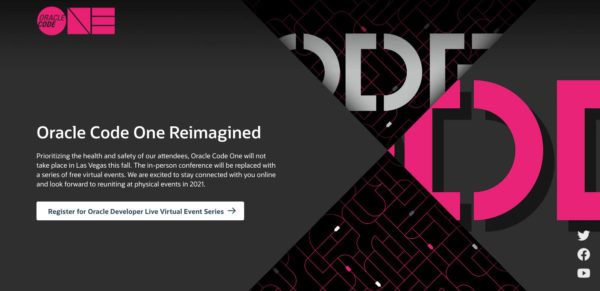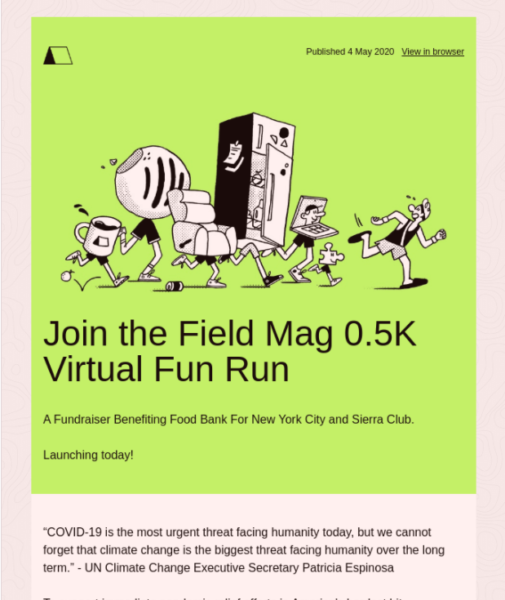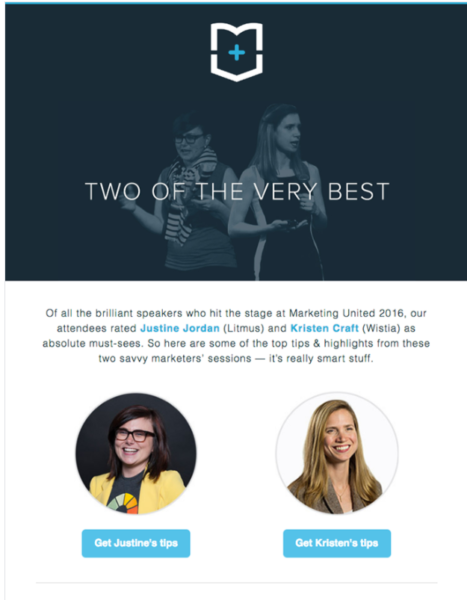
Don’t reinvent the wheel! Use these highly effective event marketing examples to inspire your next event campaign.
How important is event marketing? According to PwC, the second largest professional services firm in the world, roughly $108 billion is spent on event marketing, also known as experiential marketing, in the United States every year. 90% of nonprofits said that events were very important to their organizations.
Even since the COVID-19 pandemic changed how we experience events and made virtual events more prominent, it’s clear that event marketing isn’t going anywhere.
In this article, go through eight event marketing examples you can use to create buzz and generate lots of attendees for your next event.
Event marketing is a way to reach out directly to existing clients, new prospects, or your target audience to create new connections through interesting experiences.
No company is too large (or too small) to benefit from event marketing; in 2018, industry giants like Oracle, Google, CNET, and Apple hosted events that were wildly successful. But don’t let the large names scare you off. Even events like product demonstrations, a class open to drop-in clients, or nonprofit adoption drives are worthy of a great event marketing strategy.
Event marketing, also known as experiential marketing, is all about using experiences — whether virtual or in-person — to teach potential and existing customers about your products, services, or business. These events can also be great ways to show off your own skills, help you make connections with other business owners, or fundraise for your nonprofit.
Now that you know the importance of event marketing, let’s dive into some event marketing examples to help you start thinking about how you’ll promote your next event.
8 event marketing examples to help you get started
1. User conferences
Conferences can be extremely attractive to people from all walks of life – even for industries you might not expect. They can also be great networking events, and typically have a theme relevant to the industry.

In this particular example, Oracle’s event marketing tactics focused on pivoting to a “reimagined” version of their normally in-person conference. To keep their momentum alive as social distancing prevented large in-person gatherings, Oracle promoted a series of virtual events and also highlighted content from previous in-person events.
Remember: It’s always important to practice what your event preaches. Say you’re aiming to emphasize your commitment to sustainability with your event — If you’re using an event to promote your all-natural bath products to consumers, consider displaying your most popular items. You could even amp up the ambiance and use your products to create an aromatic immersion for potential clients to enjoy at the event.
Tie any food or beverages offered into your all-natural theme by offering healthy, even organic, menu options. Also, consider your brand identity (rustic, Glamorous, healthy, etc), and design your marketing materials and event decorations to match.
2. Pop-up shops
Pop-ups are all the rage right now, from Boston to San Francisco, and everywhere in between. Rainbow Room, an iconic dining venue in New York City, launched a pop-up tiki bar in 2019. They offered snacks, drinks, and – of course – festive tiki cocktails to event attendees.

While Rainbow Room typically caters to upscale clientele (think tuxedos and ball gowns), this pop-up offered potential customers a chance to try before they buy – all without dressing up. And Rainbow Room stayed true to their theme, by offering oysters topped with pink peppercorns, cotton candy, and rosé sorbet on the menu.
While you may not be offering your customers a $179 bottle of wine, the event marketing strategy examples Rainbow Room provided are easy to implement. No matter what the event, a great theme (Bark in the Park? Milkshake Monday?) can get customers in the door and making purchases. Always be true to your theme, and your brand, when running experiential campaigns.
3. Networking events & mixers
Networking events don’t have to be industry-specific, but they can expand your reach both in and outside of your local area. 72% of people said that looks and the handshake in a professional setting influenced their impression, so there’s clearly value in bringing a personal aspect to your event marketing. Get out there and meet people in your industry, or host an event and bring them into your business for an authentic experience.
Create a networking hub for people with shared interests, especially if you run a food-oriented business. Some examples could be a weekly book club, tech talk, or couple’s night. Nonprofits might also consider hosting an alumni mixer or open house.
If your business or nonprofit shares a common interest with other organizations in the area, you can team up and broaden the appeal of your event. This might also cut down on costs, depending on the venue you choose.
4. Lunch and learns
Invite your customers, potential clients, or donors to join you for a lunch they won’t forget – as they learn about your business. As an example, a 501(c)(3) nonprofit teaching others about their experience in the industry, how to get started, and what to expect. For businesses, you could draw in potential customers with a class for beginners, or an opportunity to watch you create your products.
Lunch and learns also provide the chance for potential customers to engage with your business or product in a hands-on way, offers the potential for building community, and earns the trust of customers who may refer you to friends after their great experience.
5. Community events
Did you know that 97% of consumers look for a local business online before shopping? This a huge potential market, and it’s right outside your door.
Consider hosting a movie night (a really great idea if your business or nonprofit works with children), a community cook-off, or a game night at your business. Make sure to take a look at your target market’s interests, and be aware of potential schedule conflicts. You can even run a quick survey beforehand with potential themes or times to test the idea with your community.
6. 5K run, walk, swim, or ride
A 5K event offers a chance to crowdfund for a nonprofit cause, even your own, using event marketing. An event like this can also reach the friends and families of your participants organically and spread the message of your organization. Make sure to develop an event marketing strategy that gives participants plenty of time to get ready, as a 5K isn’t (necessarily) a walk in the park. Try creating a theme to attract more participants. October Zombie Run, anyone?

While this one works well for nonprofits, that doesn’t mean your business can’t partner with a nonprofit to promote the event and get your name out there, too. Ask a nonprofit how you could show support while showcasing your organization alongside theirs. This could be as simple as providing merchandise, setting up a booth by the finish line, making tax-deductible donations, or featuring your logo on their marketing materials.
7. Auctions and raffles
Auctions and raffle events generate income while driving awareness at the same time. Many companies make sharing a requirement for entering into a raffle, spreading brand awareness to friends of your primary audience. Make sure to come up with a winning event marketing strategy to drive sales of tickets or items – an auction or raffle works best when you plan ahead.
Raffles offer customers a chance to demo your product or service, which can increase sales. If your winner has a great experience, you can also ask them to leave a review of the product or service to help generate future sales.
For nonprofits, auctions turn surplus donation items into a tool to grow your audience.. Know what you have in stock, and value the items accordingly. You can also auction off an experience, such as a lunch with an important figure in your company or industry area. If you’re not a nonprofit, you can always auction off special sessions of a service, entry to special events, or similar personal experiences with industry professionals and influencers who are connected to your business.
8. Special guest events
We’ve talked a lot about making personal connections with your customers, and how important it is to be memorable. Blending the two, get people in the door with a special guest! They don’t have to be a major celebrity to draw a crowd, and could even just be the top person at your business. Is someone at your business highly sought after, or always booked solid? That’s the person you’ll want to ask to be your special guest.

If you run a nonprofit, consider reaching out to people you work with every day. Animal shelters can ask a friendly animal control officer to talk about recognizing animal body language; community outreach programs can invite experts or employees to speak on recognizing or avoiding risky situations; and board members might speak about the best way to get a nonprofit started and make the organization successful. You might even consider reaching out to your network of volunteers and see if they’d be willing to contribute.
Thinking bigger? Here are some ideas for guest event speakers
- A local celebrity chef
- An expert in your field
- Someone whose positive notable actions or contributions have made headlines
- Legislators with ties to small businesses or nonprofit interests
What can I do if I don’t have a venue for my event?
It’s true that many event marketing examples, as wildly popular as they are, can also seem wildly expensive. But that doesn’t mean event marketing is out of reach for your business. Here are some more tips to help you start small with event promotion:
Use your business as the event venue
Make sure your location is in tip-top shape and invite potential customers, or repeat buyers, in to see where and how you work.
Look at low-cost options you might not have thought of for your event
Doing business out of your home, but have merchandise you want to showcase? Look into low-cost, or no-cost, options such as doing an event at your local library, Lions Club, or senior center.
Your town most likely has a craft fair, farmer’s market, or local business association, even if it’s only a few times a year. If applicable to your products or services, consider taking your show on the road. Get to know potential clients face to face, letting them smell, touch, taste, or use your product, and create a truly special experience. These can also help you get the word out about your nonprofit, or even serve as fundraising events.
Check out conventions in your area
Booths can be a low-cost alternative to a storefront, and while you can’t set the scene as well as you might within a dedicated venue, you can absolutely make the experience memorable through set-dressing, marketing materials, or by engaging your clients in unique ways. To drive the cost down even further, contact vendors in your area who do work in similar industries to see if they’d be interested in splitting a booth with you.
Go virtual with a livestream or webinar
If you’re really in a bind, consider doing a Facebook Live event or another virtual event. These are absolutely free, but make sure this is a suitable venue for your product. If you’re selling bridal makeup applications, this is a great choice. If you’re selling food, this may not be the most effective idea, but some business owners in the baking industry have been very successful demonstrating their skills in interesting ways through Facebook and other social media videos – and this success has led to an uptick in online orders.
Take inspiration from our event marketing examples in your next campaign
No matter what you do, it’s key to know your customers and target market. Put yourself, and your product or service, out into the world to be experienced. Event marketing can convert potential clients into repeat buyers by giving them something special, an event with your business or organization that can be enjoyed, shared, and remembered. Consider exploring website options and discovering the best event websites to inspire your business.
Ready to get started? Plan every detail of your next event with Constant Contact’s event management tools.




